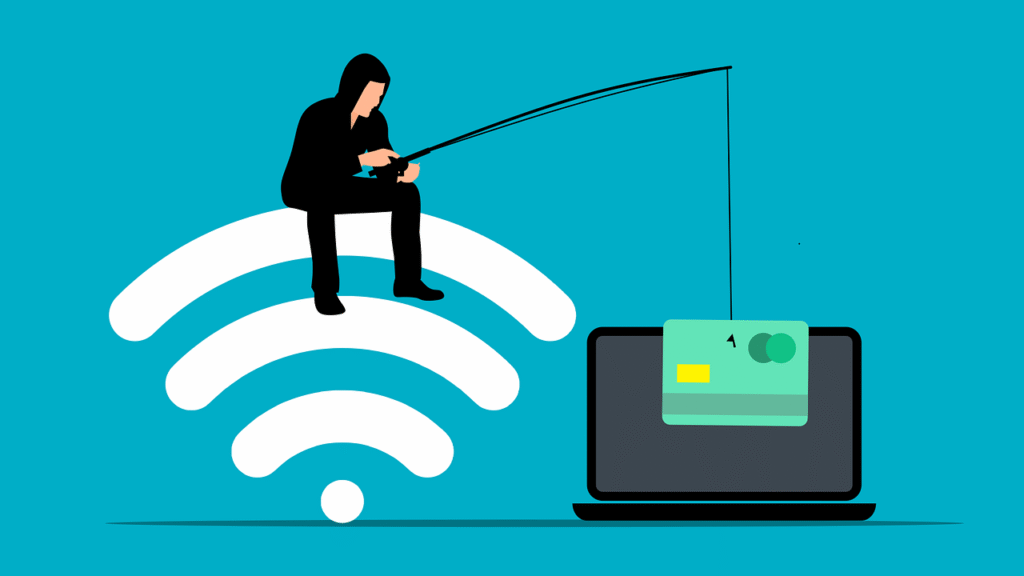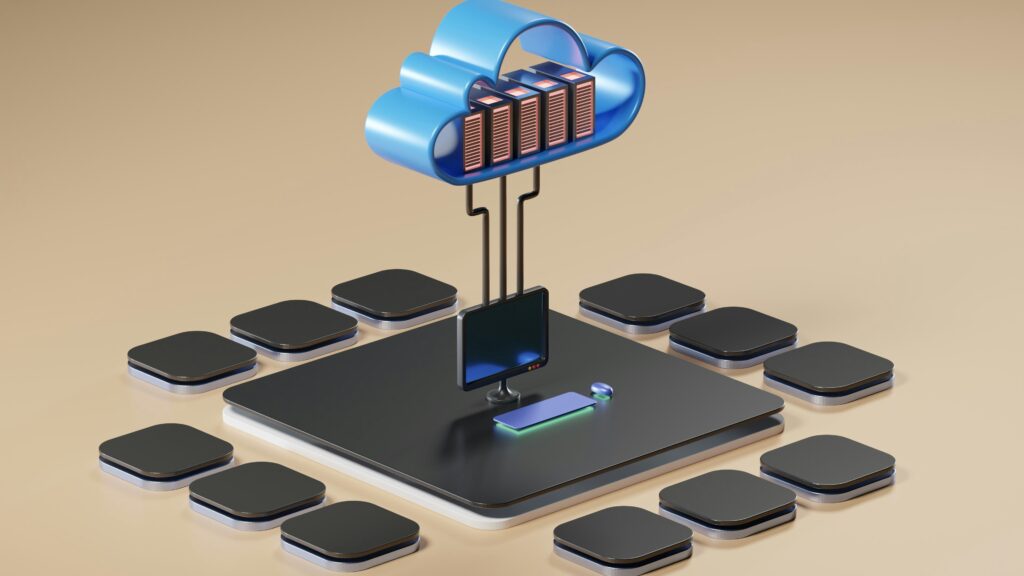Summer brings sunshine, flexibility, and—if you’re lucky—a chance to work from somewhere inspiring. But while remote work from cabins, cafes, airports, and Airbnbs might feel freeing, it comes with serious cybersecurity risks. Devices are outside secure business networks, employees are more distracted, and hackers know how to take advantage of that.
To help your business stay protected, we’ve compiled essential remote work security tips for the summer season. Whether your team is fully remote or hybrid, these remote work security tips will keep your people—and your data—safe no matter where work takes them.

Table of Contents
- 0.1 1. Beware of Risks of Public Wi-Fi
- 0.2 2. Build a Travel-Ready Security Kit
- 0.3 3. Keep Devices Physically Secure
- 0.4 4. Don’t Overshare Your Location
- 0.5 5. Review Cloud Access and File Sharing
- 0.6 6. Do a Pre-Trip Security Audit
- 0.7 7. Use MFA and Strong Passwords Everywhere
- 0.8 8. Separate Work and Personal Devices
- 0.9 Summer Bonus: Build a Security Culture in Remote Teams
- 0.10 Conclusion: Stay Secure, Work Anywhere
- 1 Take Control of Your Digital Safety
1. Beware of Risks of Public Wi-Fi
Public Wi-Fi may be convenient, but it’s also one of the most vulnerable entry points for cybercriminals. Whether you’re working from a hotel lobby, airport terminal, or local coffee shop, unsecured networks put your business data at serious risk.
As part of your remote work security tips checklist, avoid logging into company email, cloud storage, or internal apps over open Wi-Fi. Instead:
- Use a personal mobile hotspot whenever possible
- If public Wi-Fi is unavoidable, use a trusted VPN to encrypt your connection
- Disable auto-connect to Wi-Fi networks in device settings
- Never access sensitive systems without secure authentication
One of the smartest remote work security tips is to assume that every public network could be compromised. VPNs help, but training your team to spot risky connections is just as important.

2. Build a Travel-Ready Security Kit
One of the most overlooked remote work security tips is preparing a physical security kit before you hit the road. Cyber threats don’t just exist online—they can strike through shared spaces, charging ports, or public distractions while you’re working remotely.
Protect your devices and data by packing:
- A portable power bank to avoid the need for public charging stations
- USB data blockers to prevent malware from compromised ports
- A laptop privacy screen to shield your screen from visual snoops
- A Faraday bag or privacy tent for sensitive environments
- Cable locks or tracking tags to deter theft
While many remote work security tips focus on software and passwords, don’t underestimate the power of physical protection—especially in unfamiliar settings.

3. Keep Devices Physically Secure
Further, one of the most crucial remote work security tips is to never underestimate physical security. It only takes a moment for a thief to snatch an unattended laptop, phone, or tablet—especially in busy cafes, airports, or hotel rooms.
Always keep your devices within sight or securely locked up. Use cable locks, lockable backpacks, or secure hotel safes to minimize risk while on the move.
Enable device tracking apps like Find My iPhone or Google’s Find My Device before your trip. Test remote lock and wipe capabilities ahead of time so you’re prepared in case a device goes missing.
If your device is lost or stolen, a remote wipe can ensure your company’s sensitive data doesn’t fall into the wrong hands—one of the most important remote work security tips for protecting your business and personal information this summer.

One of the key remote work security tips to keep in mind is being careful about how much you share online—especially your location. It’s tempting to post that gorgeous beach view or your cozy mountain workspace, but oversharing in real time can expose you to cyber risks and even physical dangers.
Avoid posting vacation photos or check-ins until after you’ve returned home. Don’t tag your exact location in social media posts or stories, and steer clear of sharing work updates from places that can be easily identified.
Cybercriminals, traffickers, and thieves often scan social media for real-time location info to find vulnerable targets. Limiting your digital footprint is a simple but powerful remote work security tip to protect your privacy and safety while enjoying your summer work setup.

5. Review Cloud Access and File Sharing
An essential remote work security tip is regularly reviewing who can access your company’s cloud files and folders—especially when working from multiple devices or locations.
Take time to audit shared folders and links on platforms like Google Drive, Dropbox, and OneDrive. Remove collaborators who no longer need access and expire any outdated sharing links. This helps prevent unauthorized access or accidental data leaks.
Avoid downloading sensitive documents to public or shared devices, which can easily be compromised. Instead, rely on secure, cloud-based access whenever possible to keep your files protected.
Regular cloud access reviews are a simple but powerful remote work security tip to maintain control over your data and keep your business safe this summer.

6. Do a Pre-Trip Security Audit
One of the smartest remote work security tips is to perform a thorough pre-trip security audit before you leave. This quick digital check can save you from major headaches while on the road.
Make sure your operating system, apps, and antivirus software are fully updated to patch any vulnerabilities. Backup important files securely—using encrypted cloud storage or an external drive—to prevent data loss.
Set up remote wipe and device tracking on all your gadgets, so you can respond quickly if something goes missing. Don’t forget to inform your IT team or security manager about your travel plans; this enables them to monitor for any unusual activity on your accounts during your absence.
Taking 30 minutes to complete this pre-trip security audit is one of the most effective remote work security tips you can follow to keep your data and devices safe this summer.

7. Use MFA and Strong Passwords Everywhere
When it comes to remote work security tips, enabling multi-factor authentication (MFA) is an absolute must. MFA adds an essential second layer of defense beyond just a password, making it much harder for hackers to access your accounts.
Make sure to activate MFA on all critical platforms—email, cloud storage, project management tools, and VPNs. Pair this with a trusted password manager (like Bitwarden) to generate and securely store unique, complex passwords for every account.
Avoid saving passwords directly in your browser, especially if you’re using shared or public devices. Many data breaches stem from just one weak or reused password—don’t let that be your weak link. Incorporating MFA and strong password practices into your routine is one of the top remote work security tips to keep your data safe and your summer productive.

8. Separate Work and Personal Devices
One of the most overlooked remote work security tips is keeping your work and personal devices separate. Mixing the two can lead to cross-contamination of data and increase the risk of breaches or accidental exposure.
Avoid logging into work accounts from family devices or public computers. Instead, consider using a dedicated travel laptop or a separate work phone when you’re on the go. If that’s not possible, leverage guest modes or separate user profiles to keep work activity isolated from personal use.
This clear boundary not only enhances your cybersecurity but also helps maintain focus and reduces digital burnout. Making this separation part of your routine is a smart way to strengthen your remote work security tips and enjoy a safer, more productive summer.

Summer Bonus: Build a Security Culture in Remote Teams
If you manage or are part of a remote team, incorporating cybersecurity awareness into your daily routine is essential—especially during the relaxed summer months. It’s easy to get complacent, but reinforcing security habits helps keep your data and company safe.
Schedule a virtual summer refresher focused on remote work security tips to remind everyone of the basics. Run a seasonal phishing simulation or awareness campaign to keep employees alert to evolving threats. And make sure the entire team knows your incident response process and how to report suspicious activity quickly.
Remember, the best cybersecurity tips for remote workers only work when everyone is engaged and committed to protecting your organization.

Conclusion: Stay Secure, Work Anywhere
Working remotely this summer doesn’t have to mean taking cybersecurity risks. With the right tools and habits, you can work securely from the beach, the mountains, or your backyard.
Need help securing your remote team?
Contact Bison Security Co. for custom VPN solutions using our Bison SafeFilter.
Let’s keep work flexible—and secure—this summer.

Take Control of Your Digital Safety
At Bison Security Co., we believe strong cybersecurity starts at home—and grows with you. Whether you’re a parent, professional, or small business owner, we’ve got your back with the tools and support you need to stay safe in a connected world.
Here’s How to Get Started:
- Protect Your Home Network — Learn about Bison SafeFilter and block threats before they reach your devices.
- Test Your Scam-Spotting Skills — Take our Family Phishing Quiz and see how ready your household really is.
- Stay Cyber-Smart — Subscribe to our newsletter for weekly safety tips, family-friendly checklists, and early alerts.
- Tune In to the Podcast — Coming soon: honest, practical conversations about digital safety for modern families.
Security That Stands Its Ground.
